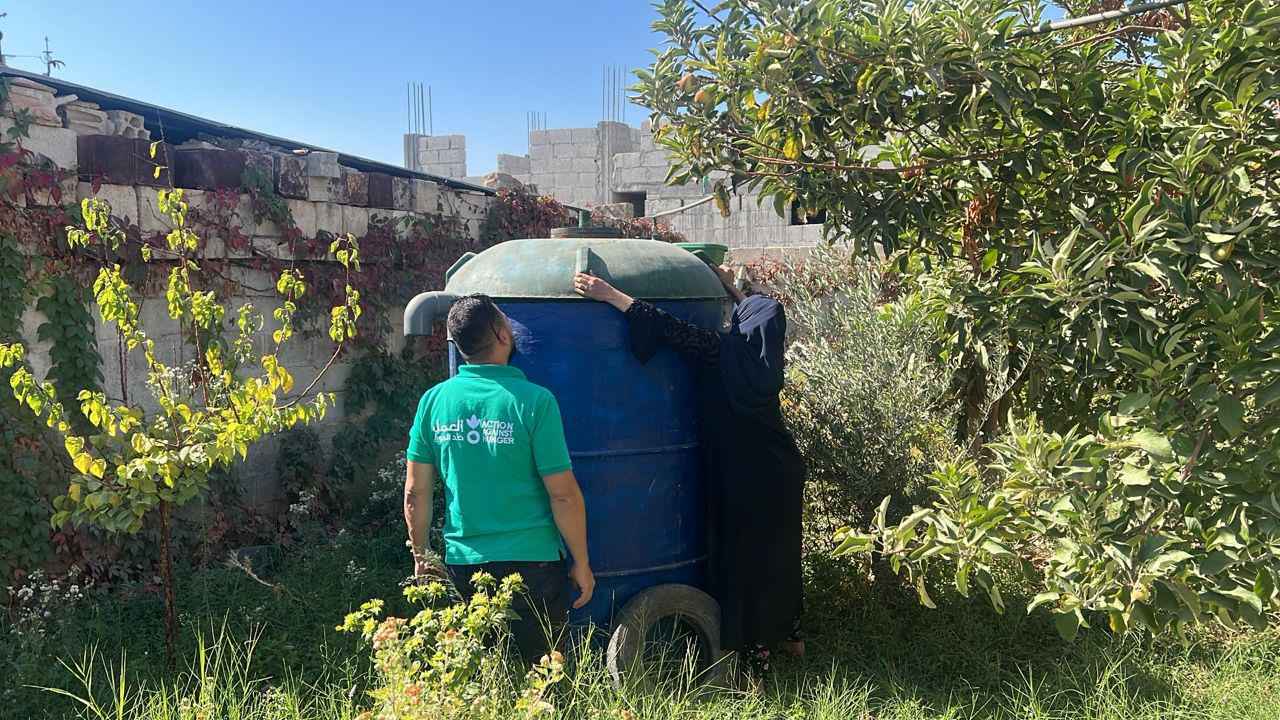

EQUIPPING CATTLE BREEDERS AND FARMERS WITH SUSTAINABLE TOOLS _ INSTALLATION OF BIOGAS UNITS
Power, Fertilizer and sustainability from a Single Unit
Sahar’s story
In the heart of Hama countryside, stands Sahar, a 36-year-old woman who symbolizes resilience in the face of challenges. A mother of five, Sahar lost her husband three years ago and was displaced from her home for 11 months and stayed in her brother's house before beginning her journey back to her partially damaged home, yet Sahar was determined to rebuild not just her house, but her family's future.
Despite the difficult circumstances, Sahar did not abandon her primary source of income: raising cattle. For 16 years, she had managed this work alongside her husband and took full responsibility after his passing. Her proactive spirit didn't stop there. To diversify her income, she began producing and selling dairy products like yogurt, cheese, and labneh to a local merchant, earning a crucial weekly income of nearly 400,000 Syrian Pounds (approximately USD 34). She further ensured her family's food security by cultivating a home garden with vegetables and fruit trees and raising chickens and pigeons.
In 2025, Sahar was selected to benefit from a biogas production project implemented by Action Against Hunger and funded by the European Union, which targets cattle breeders. A biogas unit was installed next to her house.
While weather conditions caused a delay, the unit was successfully installed in July 2025. To Sahar's amazement, it began producing usable biogas just 20 days later. The impact was immediate and tangible.
"I used to need three gas cylinders per month, but now I only need one cylinder, and the rest is supplied by the biogas unit," Sahar explains. "This has relieved me of a significant financial burden."
The impact of the project was not limited to providing gas; she also benefited from the organic fertilizer produced by the digester, which she uses to fertilize her trees and vegetables. She even shared samples with her neighbors, who were impressed by its quality.
Sahar concluded: “This biogas unit has become a part of my home; I take care of it just as it takes care of me."
Hussein’s story
Hussein, a 47-year-old father of six, has always been a provider. For years, that meant leaving his family and home in Syria to work in construction abroad.
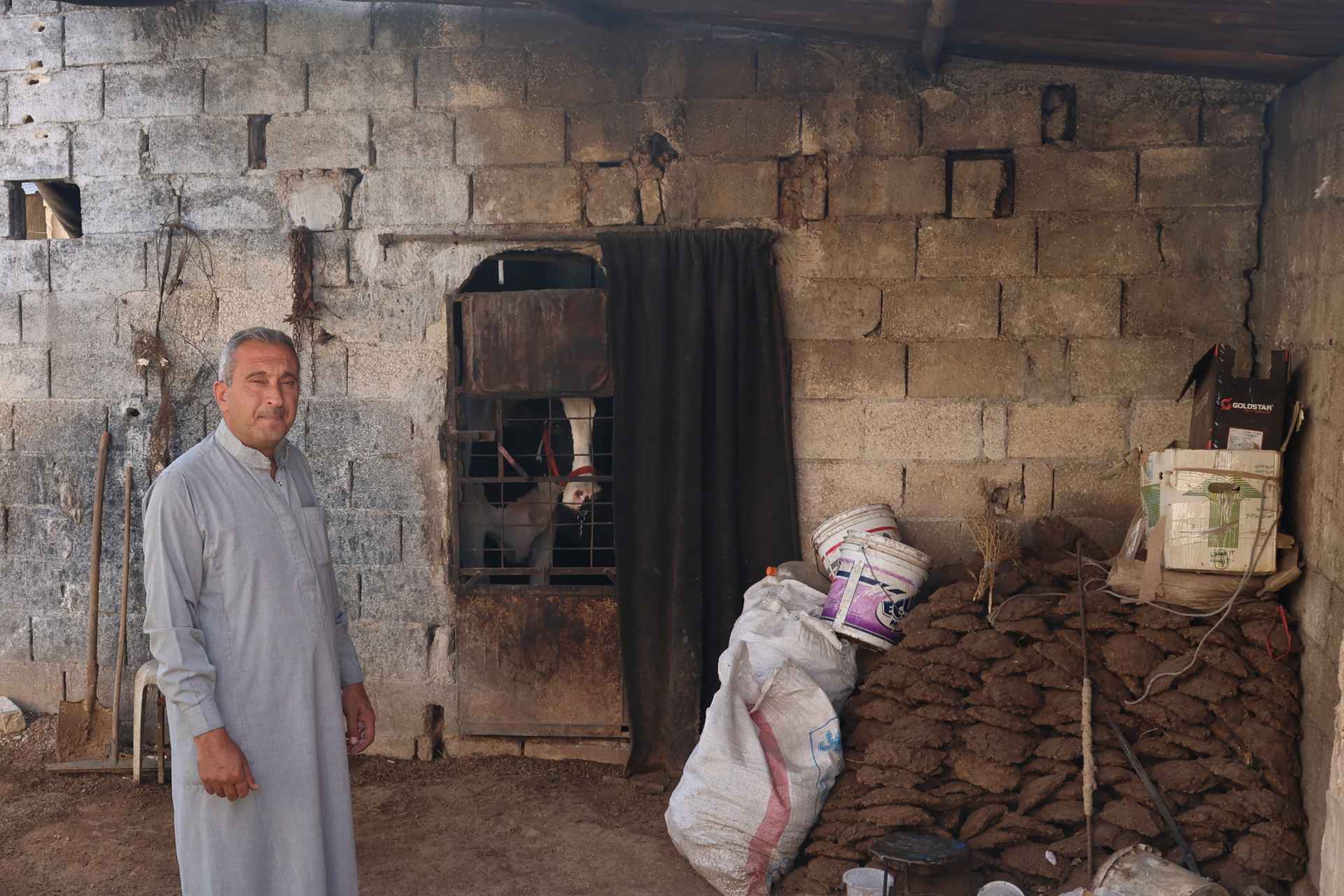
In 2016, when he could no longer travel, he turned his skills to building a self-sufficient life at home through cattle rearing, dairy production, and a home garden that provided vegetables and fruits for his family. Yet, a persistent challenge threatened his livelihood: the crippling cost and scarcity of cooking gas.
He was trained by an organization in livestock rearing and proper agricultural practices and took it upon himself to disseminate what he had learned. Later, in 2022, he learned about biogas for the first time from another organization. Though he couldn't test it himself, when he told others about it, he was met with mockery.
In 2025, with funding from the European Union, Action Against Hunger provided Husein and other Livestock farmers in his village with biogas units for their homes. The unit has transformed his energy consumption. "I have benefited from this biogas in several ways, but the biggest is the gas it produces," Hussein said. "It saved me from buying gas cylinders as often. I used to need one cylinder per month, but now the same cylinder lasts me two and a half months. I'm sure it will last at least three months soon, as I get more used to using the biogas. Now, we only use the gas cylinder when we're in a hurry or in the evening, for everything else, we use biogas.”
"Before receiving the biogas, I had to stop my work," Hussein explained. "The process of making cheese and yogurt consumes a large amount of gas, and I did not have the financial ability. The cost of production was higher than the profit; it wasn't working out for me." His family even stopped cooking certain time-consuming dishes to save fuel.
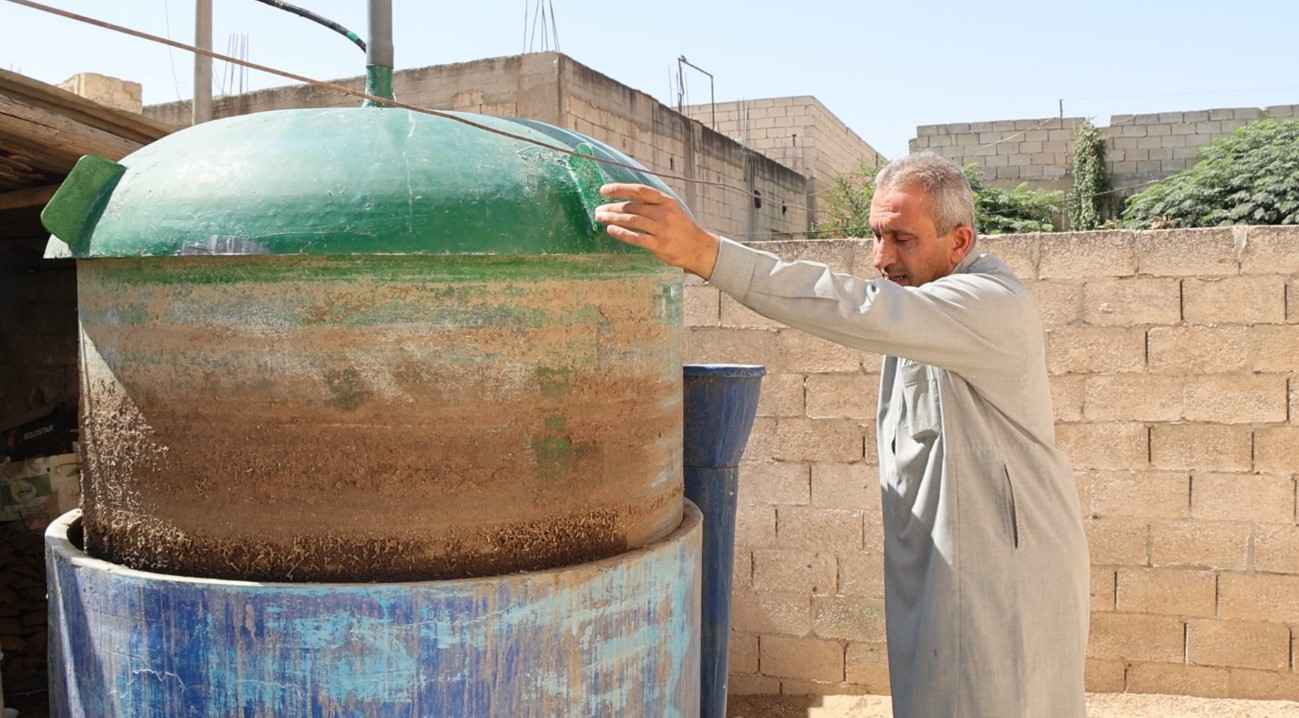
With a reliable, free source of fuel, Hussein's business became viable again. He can now produce dairy products for his family and for sale without the fear of profits being consumed by gas costs. "Now we use gas without fear or worry that it will run out."
A remarkable secondary benefit provided by the unit: high-quality organic fertilizer. The unit transforms waste into energy and, subsequently, into a safe, organic fertilizer. This fertilizer is fermented to eliminate bacteria and fungi, resulting in a pure, chemical-free amendment for his plants.
"I noticed a big difference in the quality of the crops; it became excellent," Hussein shared. "For example, mint leaves became larger and more fragrant."
Hussein has become a model of enthusiasm and self-sufficiency in his community, tirelessly working to maximize the benefits of his biogas unit.
This initiative does more than just provide a resource; it protects the environment and empowers farmers like Hussein to build resilient, self-sufficient futures, securing both their energy and their food from their own land.
Kawther story
Kawther, a 38-year-old widow and mother of three from a village in Aleppo governorate, has faced huge hardship since her husband passed away in 2014. As a farmer and cow breeder, her life is tied to the land, land that once was green and full, but is now half-empty.
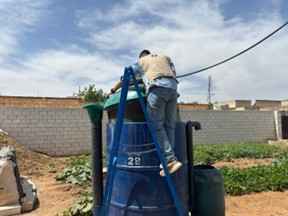
“We can’t afford seeds to plant, fertilizers to nourish the soil, or fodder to feed the few cows we still have,” she says.
To survive, Kawther made painful sacrifices, selling her cows and even her wedding gold, assets that were both her livelihood and her security. But it was never enough to feed her three children. To put food on the table, she began working as a daily agricultural laborer.
Each day brought a new struggle. Cooking, a basic act of care, became one of her greatest challenges. She spent hours gathering wood, carrying heavy bundles over long distances, and then cooking over a smoky open fire. The smoke choked her lungs, and she often suffered burns. “I simply couldn’t afford a gas bottle,” she explains. “Every day was a struggle, but I kept going, for my children.”
That struggle changed when Action Against Hunger, funded by the European Union, installed a biogas unit in her home. The unit provided a clean, reliable, and safe source of energy for cooking, freeing Kawther from the dangerous and time-consuming task of gathering wood.
“I no longer need to collect wood or suffer from smoke and burns,” she says. “With the time and effort I used to spend just to prepare a meal, I now invest in caring for my family and our small garden.”
¿Qué es Lorem Ipsum?
Lorem Ipsum es simplemente el texto de relleno de las imprentas y archivos de texto. Lorem Ipsum ha sido el texto de relleno estándar de las industrias desde el año 1500, cuando un impresor (N. del T. persona que se dedica a la
The benefits extended beyond the kitchen. The biogas system produced natural fertilizer, which has enriched her soil.
Perhaps the most profound change has been in Kawther’s role within her community. She has become a local expert in the biogas system, with other farmers seeking her out for advice and technical support.
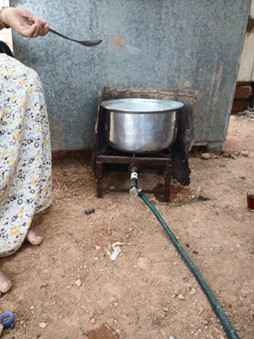
“What makes me proudest is that I’ve become an expert,” she shares. “I feel empowered, not just by technology, but by the trust my neighbors place in me.”
This simple innovation has not only transformed her daily life but has also restored her sense of purpose.
“I am deeply grateful for this support, which has meant more than just assistance. It has given me the tools and the confidence to rebuild my life and care for my family." She concluded.
